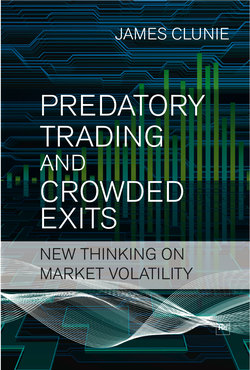Читать книгу Predatory Trading and Crowded Exits - James Clunie - Страница 11
На сайте Литреса книга снята с продажи.
Why smart arbitrageurs don’t always win…
ОглавлениеShleifer and Vishny (1997) describe one of the ways in which a well-informed arbitrageur can fail. A textbook description of arbitrage suggests that the process requires no capital, entails no risk and generates guaranteed and immediate profits. This kind of arbitrage would bring prices towards equilibrium and keep markets efficient. However, the authors argue that:
the textbook description does not describe realistic arbitrage trades and, moreover, the discrepancies become particularly important when arbitrageurs manage other people’s money.
Types of arbitrage that appear to be simple, such as that between two similar bond futures contracts traded on different exchanges, can take on the characteristics of risk arbitrage when considered fully. Even mechanically hedged arbitrage positions, such as long stock/short future, can result in financial distress if the arbitrageur earns paper profits on the stock leg but is unable to meet the cash requirements arising from losses on the futures leg. Risk arbitrage bears risk of loss and requires capital – an important distinction from the textbook definition of arbitrage.
